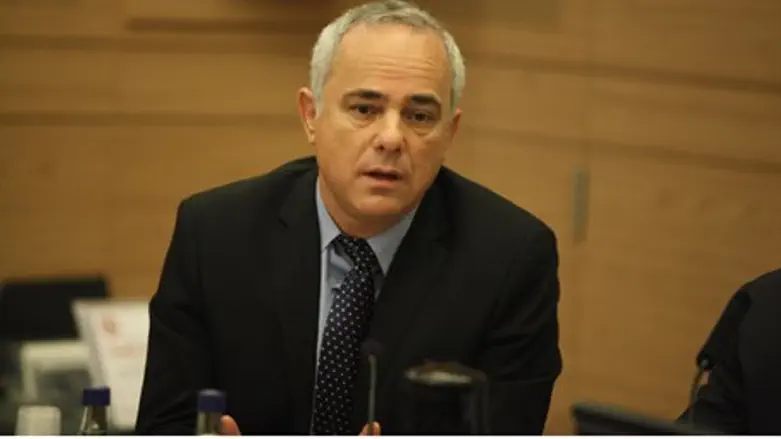
Israel's intelligence minister on Tuesday wrapped up a two-day European diplomatic offensive against making concessions to Iran in nuclear negotiations with world powers, his spokesman said.
"Intelligence Minister Yuval Steinitz completed two days of intensive discussion in Paris and London," a statement from Eyal Basson said, adding that the minister was accompanied by National Security Adviser Yossi Cohen and other intelligence experts.
"They met the British negotiating team, headed by Simon Gass, and senior intelligence officials," the statement said, adding that Steinitz in his meetings talked about Iranian research and development on advanced centrifuges.
These highly sophisticated machines enrich uranium gas at supersonic speeds to make it suitable for power generation. At high purification levels it can also be used in an atomic bomb.
Iran currently has about 19,000 centrifuges, of which just over 10,000 are operational.
Steinitz said that a deal with Tehran should oblige it to reveal details about past experiments it has carried out in nuclear weapons technology, the statement said.
It gave no details about the Israeli delegation's talks in Paris.
A statement on Sunday said that Steinitz was "on a mission from Prime Minister (Binyamin Netanyahu) for a short visit to Europe in an attempt to influence the details of the emerging agreement on the Iran nuclear issue".
Netanyahu has repeatedly called for Iran's entire nuclear capability to be dismantled.
Both France and Britain are members of the P5+1 group of powers in nuclear talks with Iran that are set to resume on Wednesday or Thursday in Switzerland.
France has expressed skepticism about the speed of a potential deal in which Iran would place its nuclear program under severe restrictions in exchange for a stage-by-stage lifting of international sanctions.
Netanyahu, who was elected to a third term last week in a close-fought general election, spoke to the US Congress during his campaign to denounce the agreement under negotiation as a "bad deal."
"That deal will not prevent Iran from developing nuclear weapons," he told the US lawmakers. "It would all but guarantee that Iran gets those weapons, lots of them."
AFP contributed to this report.